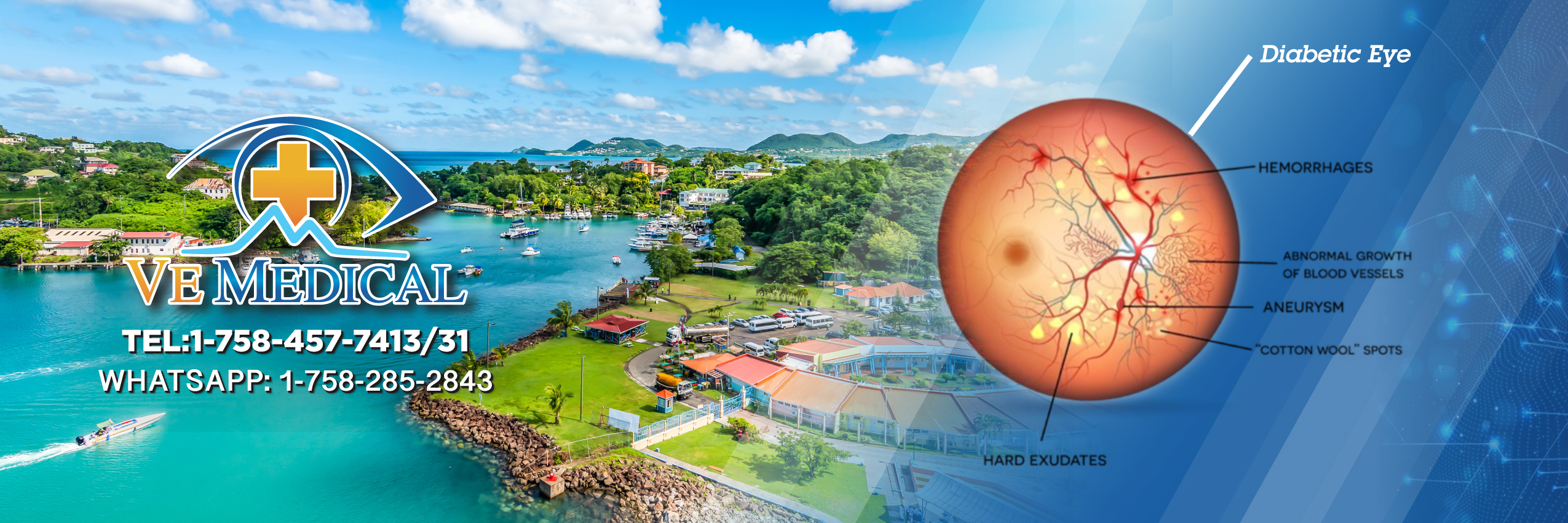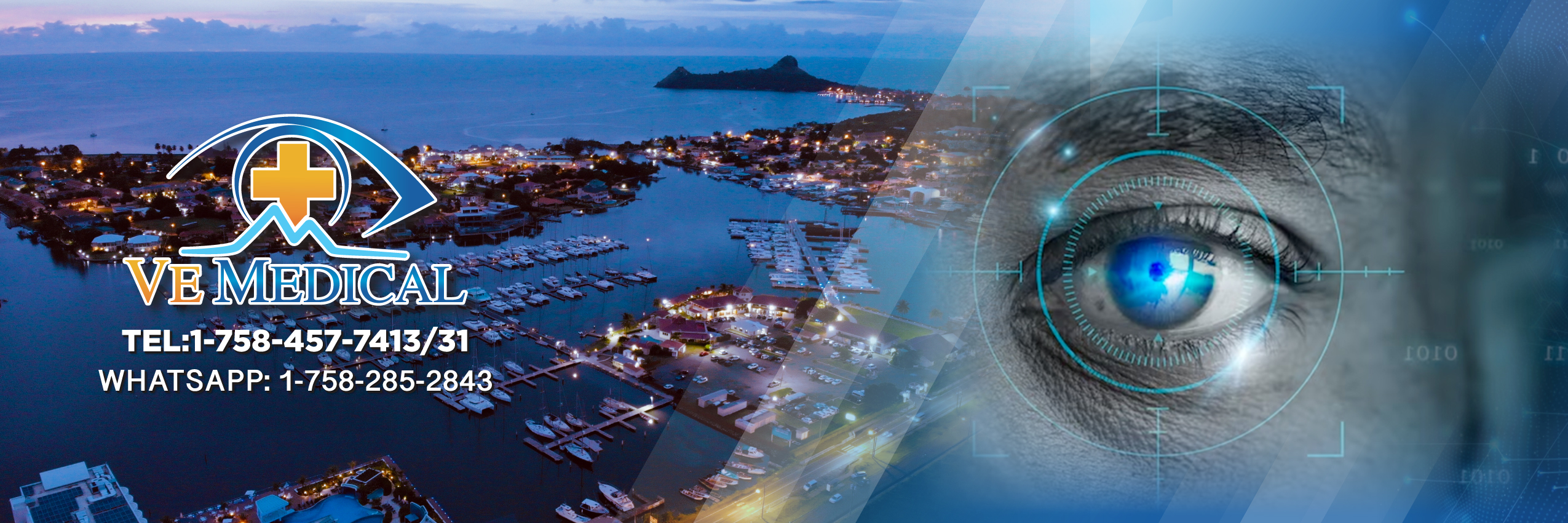RETINAL EYE DISEASE
IN THE CARIBBEAN
What is retinal disease?
Retinal diseases cause damage to any part of the retina. If left untreated it can result in severe vision loss and even blindness.
However, early detection of some retinal diseases can enable effective treatment, and others can be managed or slowed down to maintain or potentially restore vision.
BOOK AN APPOINTMENT
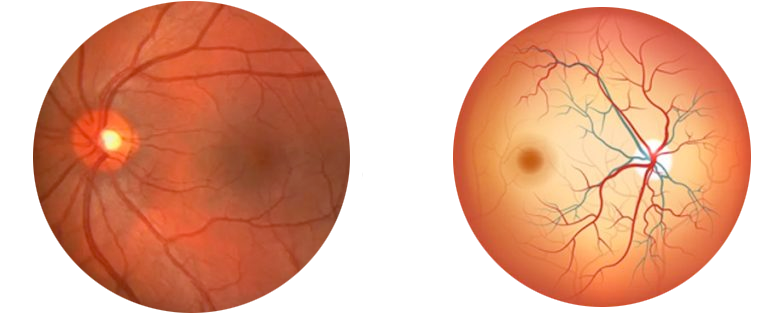
Retinal diseases can affect any part of your retina, which is a thin layer of tissue on the inside back wall of your eye.
What is the primary function of the retina?
Located at the back of the eye, the retina is a slim tissue layer that comprises millions of light-sensitive cells known as rods and cones. Its primary function is to receive, organize and transmit visual information to the brain via the optic nerve. The overall result of this complex process is the ability to see.
What are the symptoms of retinal disease?
- Reduced vision
- flashes of light
- Seeing floaters
- Blind spots in central vision
- Blurred or distorted vision
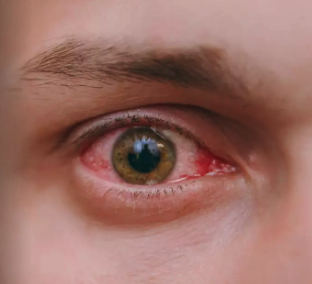
Who is at risk of developing retinal disease?
There are several factors that may increase your risk of developing a retinal disease, such as:
- Age
- Obesity
- Diabetes
- Smoking
- Eye trauma
- Family history
The retinal specialist at VE MEDICAL can diagnose and treat a wide range of retinal diseases
Retinal tear
A retinal tear occurs when the clear, gel-like substance in the center of your eye (vitreous) shrinks and tugs on the thin layer of tissue lining the back of your eye (retina) with enough traction to cause a break in the tissue. It’s often accompanied by the sudden onset of symptoms such as floaters and flashing lights.
Retinal detachment
A retinal detachment is defined by the presence of fluid under the retina. This usually occurs when fluid passes through a retinal tear, causing the retina to lift away from the underlying tissue layers.
Diabetic retinopathy
If you have diabetes, the tiny blood vessels in the back of your eye can deteriorate and leak fluid into and under the retina. This causes the retina to swell, which may blur or distort your vision. Or you may develop new, abnormal capillaries that break and bleed. This also worsens your vision.
Epiretinal membrane
Epiretinal membrane is a delicate tissue-like scar or membrane that looks like crinkled cellophane lying on top of the retina. This membrane pulls up on the retina, which distorts your vision. Objects may appear blurred or crooked.
Macular hole
A macular hole is a small defect in the center of the retina at the back of your eye (macula). The hole may develop from abnormal traction between the retina and the vitreous, or it may follow an injury to the eye.
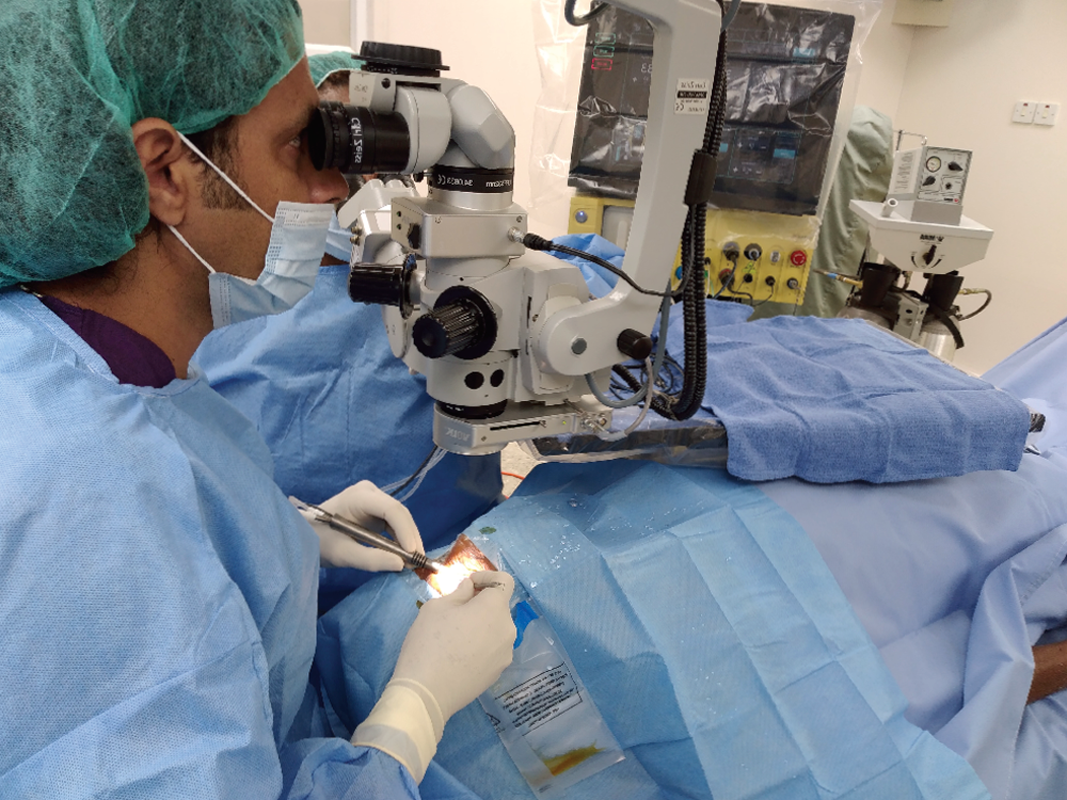
MORE INFORMATION ON THE SERVICES AT VISION EXPRESS MEDICAL

